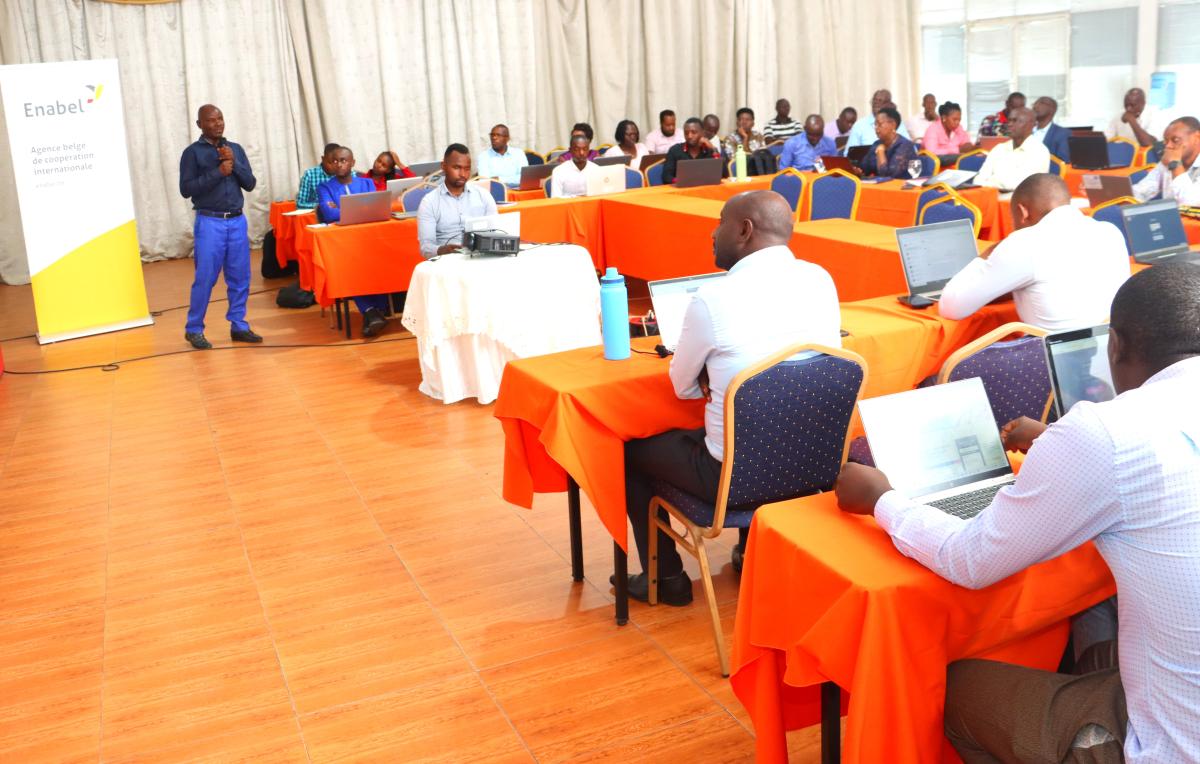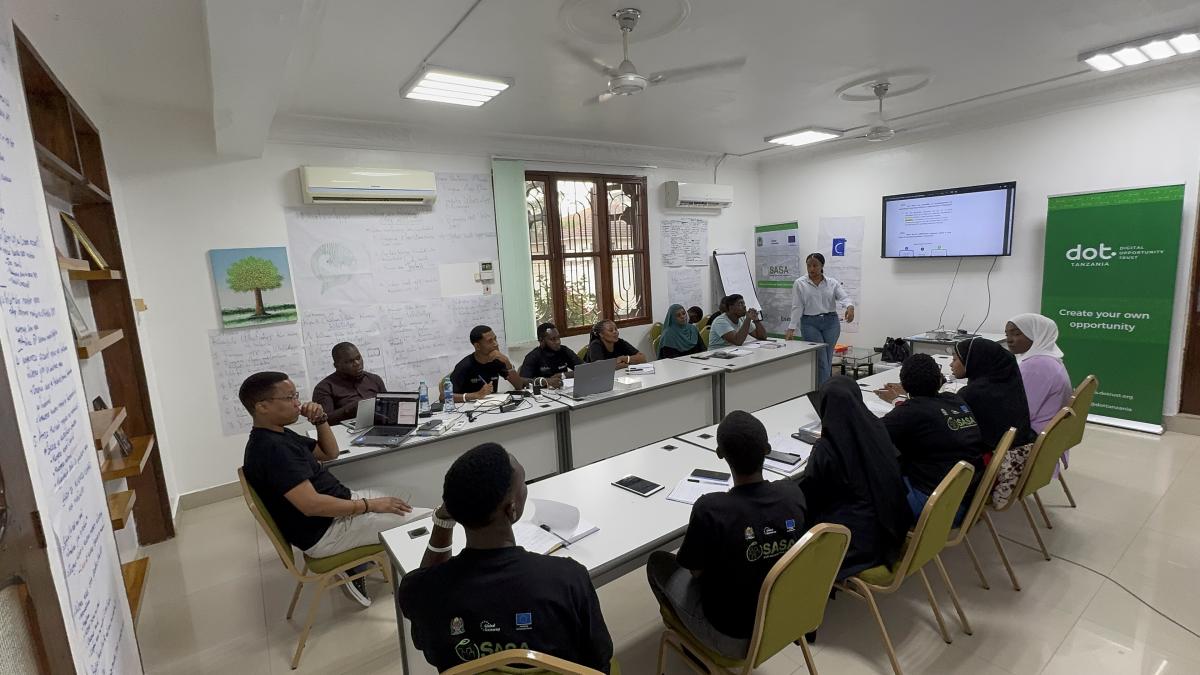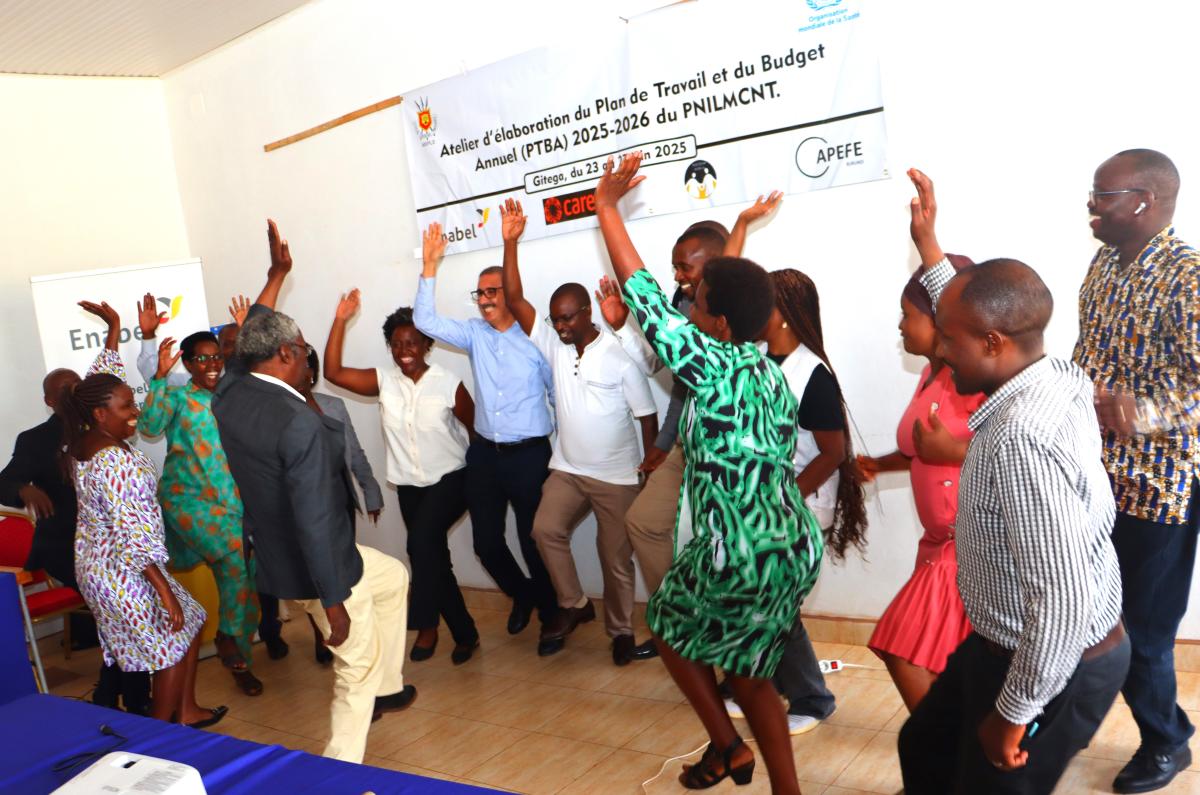Opzoeken
285 - 300 van 3120 nieuws bekijken
-
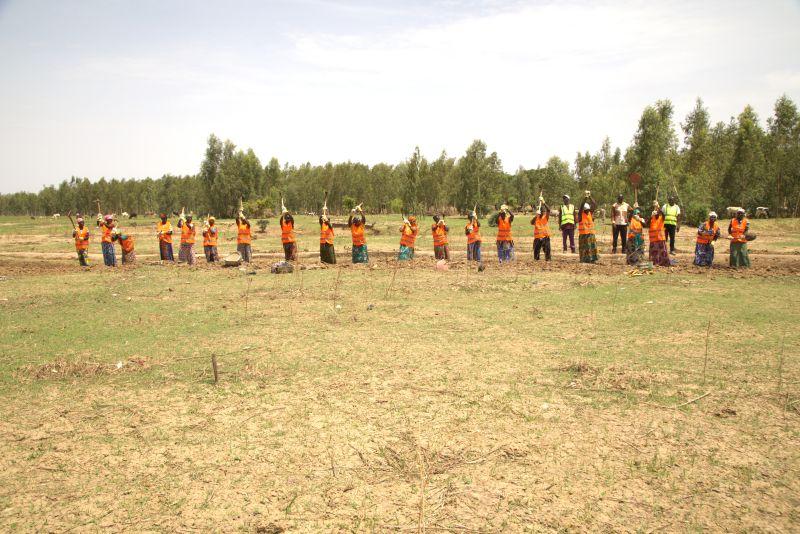
Burkina Faso : Enabel au service de la souveraineté alimentaire - 75 ha en cours d’aménagement au Centre-Est et au Plateau central
Geoffroy ZONGO | 23/07/2025
Dans le cadre du Programme belgo-burkinabè 2023-2027, la coopération entre la Belgique et le Burkina Faso prend une forme concrète et résolument tournée vers l’autosuffisance alimentaire. À travers son Agence de coopération internationale (Enabel), la Belgique soutient techniquement et financièrement l’aménagement de 60 hectares de bas-fonds rizicoles répartis entre Mogtédo et Tintogo (Province du Ganzourgou) et Dassoui (Province du Kouritenga).Les 5 et 6 juin 2025, une équipe d’Enabel s’est rendue sur les différents sites pour faire le point sur l’avancement des travaux. Cette visite a également été l’occasion de remettre aux producteurs et productrices locaux des intrants agricoles, des semences améliorées de riz, ainsi que du matériel de travail et des équipements de protection.Un appui structurant et intégréÀ Dassoui, où l'on aménage 25 hectares, les travaux avancent à bon rythme. « Cet aménagement s’inscrit dans la vision nationale de produire un million de tonnes de riz pour l’autosuffisance alimentaire », affirme M. Lionel Mari Aristide Wendingoudi YOUMA, Directeur provincial en charge de l’agriculture, des Ressources animales et Halieutiques du Kourittenga. Enabel, par son intervention, permet non seulement d’accroître les superficies cultivables, mais aussi de structurer les exploitations selon des normes techniques modernes. Le rendement visé passe de 4 à 5, voire 6 tonnes par hectare, ce qui représenterait une avancée significative pour la sécurité alimentaire de la région. Au total, 60 hectares de bas-fonds rizicoles seront aménagés : 25 ha à Dassoui, 20 ha à Towemba (Mogtédo) et 15 ha à Tintogo. À chaque étape, l’appui d’Enabel se veut global : fourniture d’intrants, équipement, encadrement technique, et soutien à l'organisation communautaire autour des investissements.Mais l’innovation ne s’arrête pas à la riziculture. Le programme prévoit également des périmètres maraîchers irrigués (15 hectares) et des forages pastoraux. Cette approche multisectorielle s’inscrit dans la logique de l’Offensive agropastorale et halieutique initiée par le gouvernement burkinabè. « L’année passée, nous étions sur des aménagements sommaires. Cette année, nous consolidons avec le modèle PAFR (Plan d’action pour la filière riz) qui garantit durabilité et impact », explique Baogoam Kaboré, chargé de projet Chaîne de valeur agricole à Enabel.Une approche territoriale participativeL’approche d’Enabel repose sur une forte implication des acteurs locaux. À Dassoui, un forage pastoral est réalisé pour désengorger les zones de cohabitation entre agriculteurs et éleveurs, réduisant ainsi les tensions liées à l’accès aux ressources. « Avoir un périmètre avec un forage pastoral est une bonne chose, car cela permet de mieux gérer les activités agricoles et pastorales », insiste le Directeur provincial en charge de l’agriculture du Kourittenga.La synergie entre services techniques, autorités locales et communautés est l’un des piliers du succès de ces aménagements. Des conflits fonciers mineurs ont été rapidement résolus grâce à l’engagement des leaders locaux, sans intervention directe d’Enabel. « Cela montre que les communautés s’approprient réellement le projet », se réjouit Baogoam Kaboré. L’implication communautaire se traduit aussi par la méthode HIMO (Haute intensité de main-d’œuvre), qui permet à la population de participer activement aux travaux tout en générant des revenus immédiats.Les femmes en première ligneDans les champs de Dassoui comme à Mogtédo et Tintogo, ce sont les femmes qui donnent le rythme. Mme Ouandaogo Sabine, est l'une des 300 femmes engagées à Dassoui. Elle témoigne avec fierté : « Avant, nous achetions du riz pour la consommation. Aujourd’hui, grâce à Enabel, nous produisons notre propre riz, ce qui nous permet de scolariser nos enfants et de résoudre plusieurs problèmes familiaux. »Même son de cloche à Mogtédo où Mme Rose Tapsoba confie : « Nous sommes environ 160 femmes à creuser les diguettes. Depuis l’an passé, Enabel nous aide, et cela a changé notre quotidien. »Le programme ne s’arrête pas au riz. Après la récolte, 15 ha de périmètres maraîchers irrigués permettront une culture hors saison, maximisant l’utilisation des terres aménagées. Les bas-fonds rizicoles abritant ces périmètres maraichers offrent des alternatives d’irrigation, d’appoint ou de complément pendant les poches de sècheresse ou d’arrêt précoce des pluies en compagne hivernale.Un investissement durable Il s’agit d’un investissement dans l’avenir rural du Burkina Faso. Enabel s’inscrit dans une démarche de durabilité et dans une approche territoriale intégrée, visant à responsabiliser les acteurs et à transférer les compétences aux services techniques locaux pour assurer le suivi et la pérennisation des infrastructures mises en place. Mr Adama Oubda, président du Comité Villageois de Développement (CVD) de Dassoui, résume bien l’état d’esprit des bénéficiaires : « Enabel a mis les moyens, à nous maintenant de jouer notre rôle. Nous ramassons les cailloux, nous creusons, car c’est notre village qui en bénéficiera. »En route vers l’autosuffisance alimentaireÀ travers cette initiative, la Belgique, via Enabel, démontre son engagement constant auprès des communautés rurales burkinabè. Au-delà de l’appui matériel, c’est une nouvelle dynamique de transformation agricole qui est en marche, mobilisant hommes, femmes, autorités et partenaires techniques autour d’un objectif commun : produire plus et mieux, pour nourrir le Burkina Faso. Et si les pluies de cette saison 2025-2026 tiennent leurs promesses, le rêve d’une souveraineté alimentaire portée par les communautés locales pourrait bien devenir réalité.
-
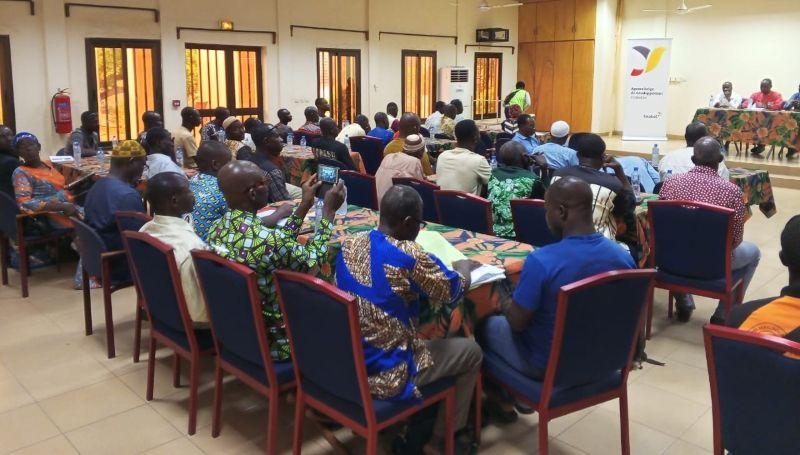
Burkina Faso : Vers une gouvernance sanitaire renforcée
Geoffroy ZONGO | 23/07/2025
La première session ordinaire du Conseil de Santé du District (CSD) de Boromo s'est tenue sous la présidence du Haut-Commissaire de la province des Balés le 10 juin 2025. Cette rencontre a réuni 75 acteurs clés du secteur de la santé, parmi lesquels des autorités locales, des responsables de structures sanitaires, des représentants d'ONG et des leaders communautaires. Organisée dans la salle de conférence du Relais Touristique de Boromo, la session a retenue de l'appui du projet « Lasso Santé », mis en œuvre par Enabel dans le cadre du programme de l'axe OKDB, financé par l'Union européenne.Bilan à mi-parcours et perspectivesLes travaux ont permis de faire le point sur les réalisations à mi-parcours du plan sanitaire annuel, autour de thématiques majeures comme la cartographie épidémiologique ; la lutte contre le paludisme ; l'audit des Comités de gestion (COGES) ; le bilan 2024 et les perspectives 2025 du projet Lasso Santé ainsi que la problématique préoccupante de l'endettement des centres de santé.Des avancées notablesLes participants·es ont salué les progrès réalisés, notamment en matière de numérisation et de réformes réglementaires : harmonisation des plateformes de saisie, actualisation des textes juridiques, etc. Ces avancées témoignent d'une volonté affirmée de moderniser la gouvernance sanitaire et de renforcer la transparence.Une vision à plusieurs horizonsCette vision s’inscrit dans plusieurs horizons : à court terme, elle prévoit la mise en place d’un réseau local de veille et de coordination ; à moyen terme, elle vise à renforcer les COGES pour une gestion plus rigoureuse des ressources ; et à long terme, elle ambitionne de bâtir progressivement un système de santé plus équitable, résilient et durable, au service de toutes et tous.Cette session marque un tournant décisif dans la dynamique de transformation du système de santé local, portée par un engagement collectif fort et un suivi rigoureux des actions.
-

Ukraine: Enabel enhances access to assistive rehabilitation devices
Taisiia DRUZIUK | 23/07/2025
Ukrainian non-profit organisation ProtezHub, in partnership with Patients of Ukraine and supported by Enabel, has launched an initiative to improve public access to assistive rehabilitation devices. The project features an interactive online course for staff at Administrative Service Centres (ASCs), which often serve as the first point of guidance for war veterans and other people beginning their recovery journey.The initiative aims to equip administrators with a standardised set of skills for arranging and facilitating access to assistive devices. Faster and more effective assistance at ASCs should remove unnecessary barriers for people who need prosthetics, orthoses, crutches, wheelchairs, or other equipment. "In hospitals, assistive devices are often provided during rehabilitation—usually short-term. Then, if someone needs something longer-term, like a permanent prosthetic, the social protection system takes over. But we know that navigating that system can be confusing or too slow—and that is something we are working to change," shares Paola Pavlenko, national health expert at Enabel.The training module consists of six 45-minute video lectures and supporting PDF materials. After watching the videos, users are invited to take a test. The course is already available on the ProtezHub knowledge base. While certificates will only be awarded to ASC staff, the module is freely accessible to everyone. "ASCs are not expected to support someone through every stage of rehabilitation, but administrators can streamline this process and provide guidance on next steps," says veteran Mykhailo Bakaliuk, whose prosthetic journey began with a visit to an ASC.One of the course's goals is to strengthen administrators' communication skills and improve these interactions." The training course on rehabilitation assistive devices is part of the “Rehabilitation Pathway: From Regional to Community Level” project within the broader War Trauma Rehabilitation initiative. The initiative to enhance information services at ASCs is delivered in partnership with the Ministry of Social Policy of Ukraine, the Ministry of Digital Transformation of Ukraine, and the Social Protection Fund for People with Disabilities.
-
Burundi : un système d’information hospitalier digital pour des soins plus efficaces
Jean BIRONKWA | 22/07/2025
Digitalisation du Système d’Information Hospitalier (DSIH) : une avancée pour l’accès aux soins et services de santé de qualité. Le Burundi s’est engagé progressivement dans le numérique pour transformer son système de santé en faveur de la qualité des soins. Cette initiative ambitieuse du Ministère de la Santé Publique et de la Lutte contre le Sida (MSPLS), vise à digitaliser les hôpitaux du pays. Ce projet de grande envergure, lancé il y a quelques années avec le soutien de l'Enabel, porte déjà des fruits, améliorant significativement la gestion des ressources, la prise en charge des patients et la qualité des données sanitaires, essentielles pour des prises de décisions éclairées. Ce vaste chantier de digitalisation a déjà touché plus de 54 hôpitaux publics, confessionnels et privés à travers le pays. Les retours des utilisateurs sont unanimes : les résultats sont probants et impactent positivement le système de santé burundais et les services hospitaliers. Notamment (1) une réduction des erreurs médicales garantissant une meilleure sécurité pour les patients, (2) une gestion optimisée des créances, de la facturation et du recouvrement contribuant à une meilleure santé financière des établissements sanitaires et enfin (3) une diminution significative de l'utilisation du papier, favorisant une approche plus écologique et efficiente. Au cours d’un atelier de présentation des résultats d’une évaluation du SIH réalisée par le Programme de Gestion de l’Informatique dans le Secteur de la Santé (PROGISSA) dans 46 hôpitaux, tenu à Bujumbura du 17 au 18 juillet 2025, la représentante du MSPLS a souligné l'importance de cette démarche, rappelant l'engagement du Gouvernement du Burundi à faire de la numérisation des services publics un levier essentiel pour renforcer la transparence et la redevabilité envers les citoyens. Les récentes évaluations du Système d'Information Hospitalier (SIH) montrent en effet que plus de 50% des hôpitaux évalués affichent un taux de performance supérieur à 80%. Cette évaluation a formulé des recommandations cruciales pour consolider et étendre ces acquis. Il s’agit du renforcement des capacités du personnel ICT pour assurer la maintenance des applications et du matériel utilisé pour la digitalisation, de rendre disponibles des sources d'énergie renouvelable pour assurer une autonomie énergétique et une continuité de service, notamment dans les zones reculées ainsi que le plaidoyer pour une ligne budgétaire dédiée à l’informatisation dans la loi budgétaire et l’implication des partenaires au développement dans les projets de digitalisation en vue d’assurer le passage idoine à l’assurance maladie universelle (AMU).
-
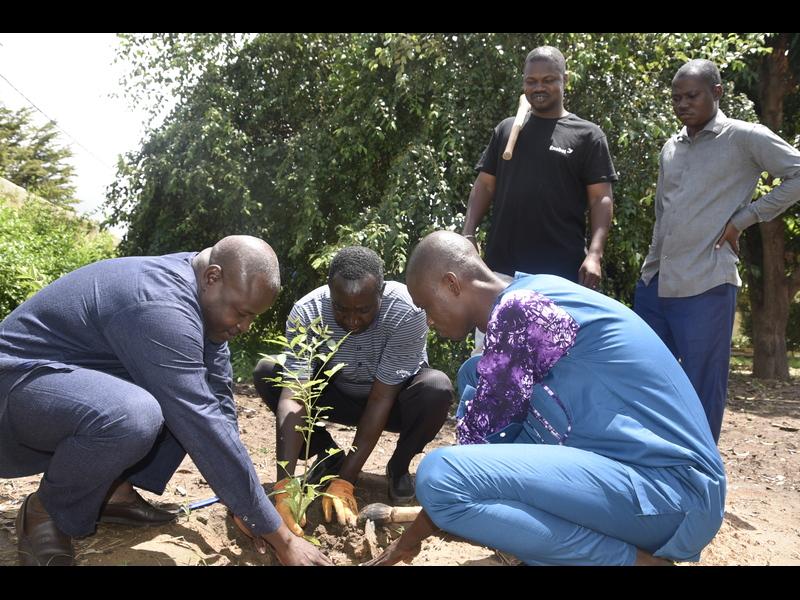
Mali : le bureau Enabel de Koulikoro s'engage pour le climat - planter un arbre pour demain !
Nènè TRAORE | 22/07/2025
Le 14 juillet 2025, dans la cour du bureau Enabel à Koulikoro, il ne s’agissait pas d’une célébration officielle, mais d’un geste symbolique fort. À l’approche de la Journée Nationale de l’Arbre, l'expert en agroforesterie du Portefeuille Thématique Climat Sahel (PTCS) a lancé une initiative simple, mais porteuse de sens : et si nous commencions par montrer l'exemple, ici, entre collègues ? Quinze d'entre eux ont répondu présents, s’agenouillant pour planter un arbre, avant de repartir avec un second, à planter chez eux, dans leurs cours et jardins, là où leurs familles grandissent. Car c’est là, au cœur de la vie quotidienne, que débute la lutte contre les effets du changement climatique. "On parle souvent d'actions à grande échelle, mais si chacun plantait un arbre chaque année, on aurait déjà fait un grand pas. L'arbre est notre meilleur allié." laissa entendre l'expert.Cette journée a permis de rappeler une donnée généralement oubliée : un seul arbre peut absorber en moyenne 25 kg de CO₂ par an. C'est peu, mais multiplié par des milliers de gestes similaires, cela devient une réponse puissante à la menace climatique. Dans notre contexte sahélien, où la terre se dénude et les ressources se raréfient, planter un arbre n'est pas un luxe. C'est un acte de survie, de résistance et surtout d'espoir. Un arbre, c'est de l'ombre, de la fraîcheur, de la vie. Et c'est un engagement que chacun peut prendre, sans attendre. Enabel, à travers le PTCS, encourage ce type d'initiatives individuelles et collectives. Parce qu'avant de convaincre les autres, il faut commencer par y croire soi-même. Ce 14 juillet, à Koulikoro, des arbres ont été plantés - mais surtout, des consciences ont été éveillées.
-
L’intelligence artificielle au service du diagnostic du paludisme au Burundi
Jonas Eric UWIZERA | 21/07/2025
Pour la première fois au Burundi, l’intelligence artificielle (IA) est mise au service du dépistage du paludisme grâce à l’application Malariya Pi, développée par Audere, une initiative appuyée par notre projet Malariya Pi. Cette technologie innovante permet une lecture automatique et fiable des Tests de Diagnostic Rapide (TDR), réduisant ainsi les risques d’erreurs humaines dans l’interprétation des résultats. Le 16 juillet 2025, à Cibitoke et Kirundo, une formation a été organisée par le Programme National Intégré de Lutte contre le Paludisme (PNILP) en collaboration avec le projet Malariya Pi exécuté par Enabel. L’objectif était d’initier les prestataires de soins à l’utilisation de cette application basée sur l’IA, et leur permettre de maîtriser ses fonctionnalités pour un diagnostic plus précis et une meilleure prise en charge des cas. Cette innovation répond à plusieurs limites observées dans les pratiques actuelles : erreurs d’interprétation des TDR, communication approximative des résultats, indisponibilité des intrants et utilisation inadéquate des antipaludiques. Grâce à l’application Malariya Pi, les données sont saisies et transmises en temps réel, ce qui facilite le suivi des cas, la réponse rapide aux flambées épidémiques, et la planification ciblée des supervisions. Les prestataires formés – infirmiers, laborantins, superviseurs,– recevront des smartphones (avec cette application accessible aussi en langue locale), ce qui va faciliter son utilisation. En intégrant cette solution technologique dans la riposte contre le paludisme, le Ministère burundais en charge de la santé marque un pas décisif vers une gestion plus moderne, plus efficace et plus équitable de la maladie et cette démarche pilote pourra ouvrir la voie à une adoption plus large des innovations numériques basées sur l’IA dans le système de santé national.
-
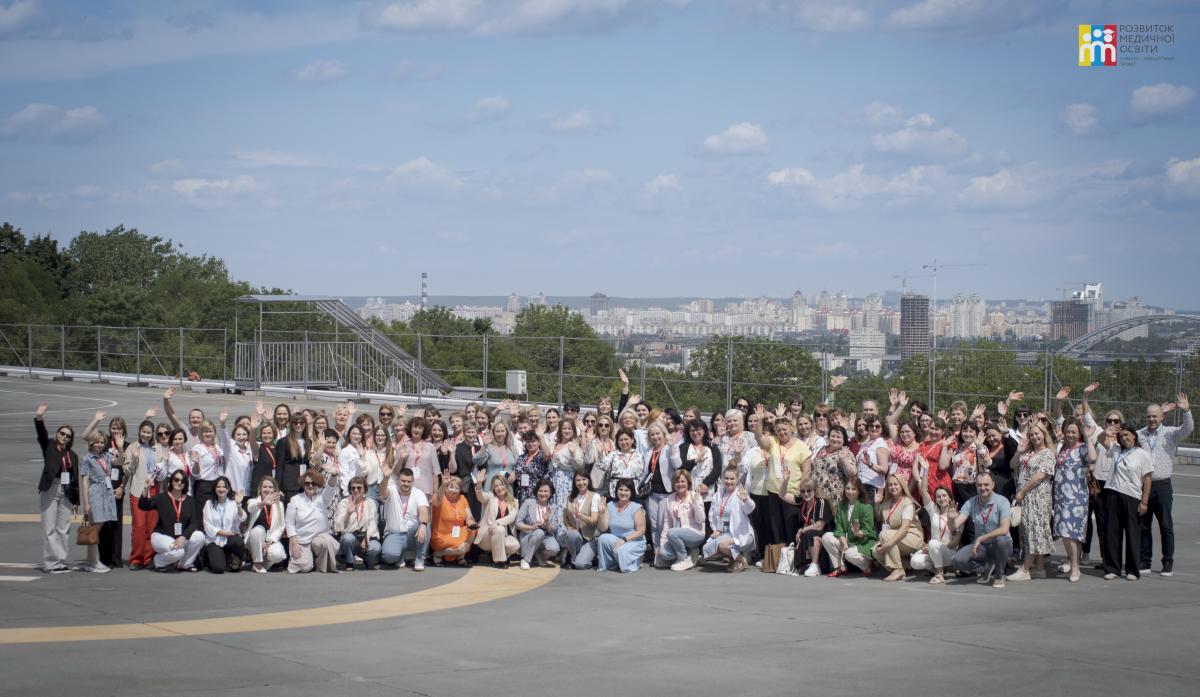
Ukraine: Enabel supports the Nursing Forum in cooperation with Swiss and Ukrainian partners
Taisiia DRUZIUK | 17/07/2025
The III Nursing Forum, co-organised by the Ukrainian-Swiss project Medical Education Development in collaboration with Enabel and the Ministry of Health of Ukraine, took place in Kyiv on June 25–27. The forum’s mission was to unite nursing community leaders and other stakeholders to foster a culture of professional development and the exchange of experience. Topics covered during the three-day event included:→ a roadmap for nursing development strategy implementation; → international experience in nursing education (including insights from Belgium and other EU countries); → opportunities to develop potential and expand nurses’ authority; → stress management, veteran care, and other pressing issues. Robin Herrero, Deputy Head of Mission (Embassy of Belgium), and Paola Pavlenko, National Health Expert (Enabel), reaffirmed Team Belgium’s support for Ukraine’s healthcare system. The forum was supported through the BE-Relieve Ukraine programme. Enabel is currently working on several nursing development initiatives in Ukraine, including the training of multidisciplinary rehabilitation teams and exchanges with Belgian universities and colleges.
-
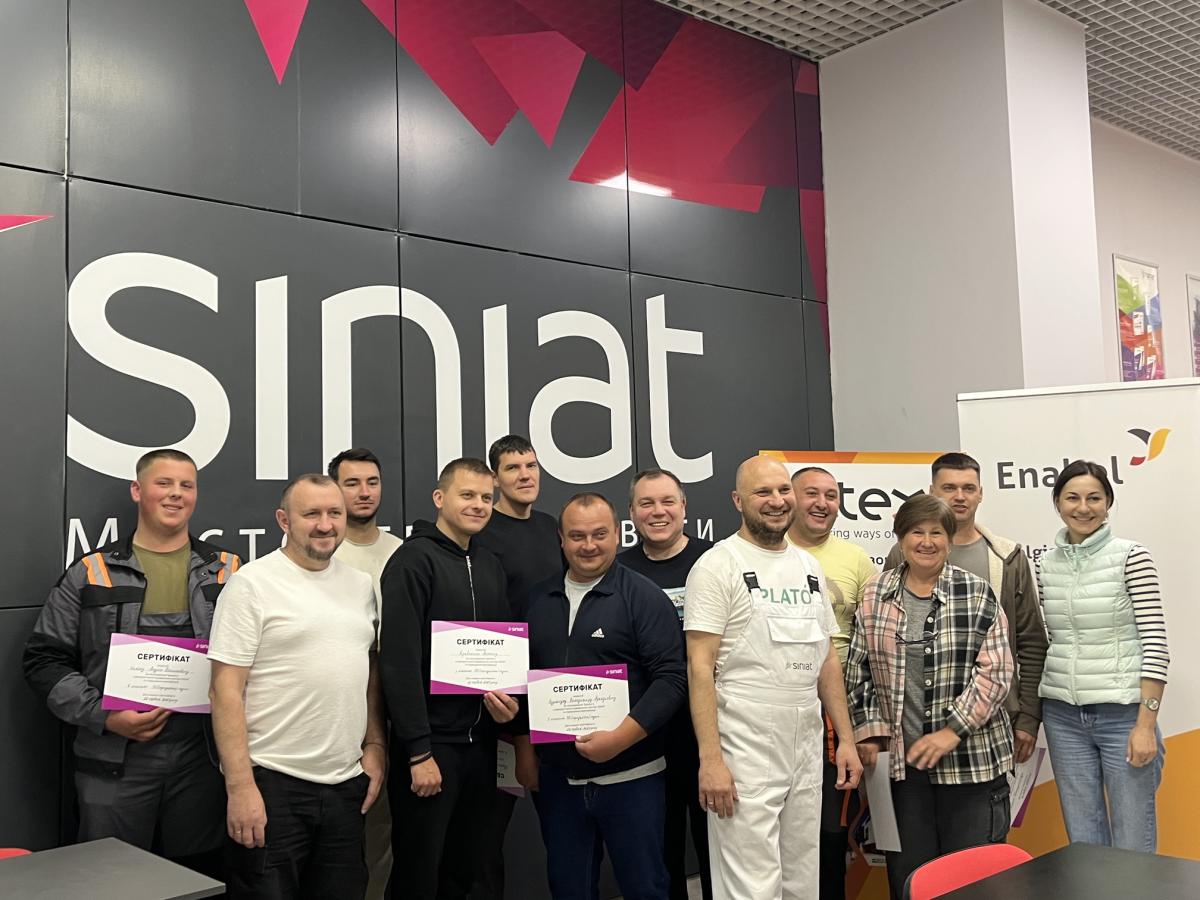
Ukraine: Enabel partners with Etex to provide training for TVET trainers
Taisiia DRUZIUK | 17/07/2025
With support from Enabel, vocational trainers from seven TVET schools across Kyiv and Chernihiv regions received training on plasterboard installation. The seminar was delivered by Siniat, a brand within the Etex Group – a global construction materials manufacturer. Etex is a Belgian company that was founded in Brussels back in 1905. The trainers practiced working with plasterboards and gypsum-based fillers. "The next step is to use this experience to train future specialists," shares Ivan Kholodko from the Boryspil vocational college. Enabel's partnership with Etex is part of a comprehensive strategy for developing skills crucial to Ukraine's reconstruction.
-
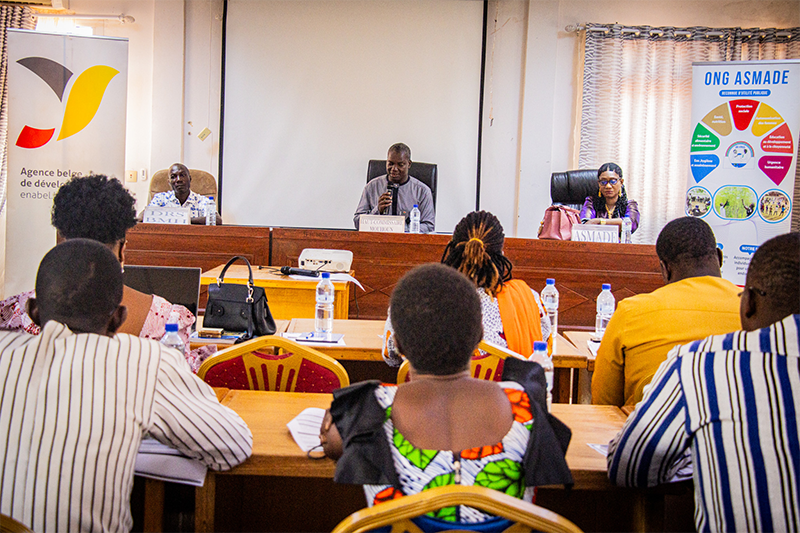
Renforcement de la résilience sanitaire au Burkina Faso : Lasso Santé, le projet qui stimule l’accès aux services de santé reproductive
Wendpouiré Julien NANA | 16/07/2025
Ce vendredi 11 juillet 2025, la ville de Dédougou a accueilli un atelier d’information marquant le lancement officiel du projet « Appui à la stimulation de la demande de services de santé reproductive », une composante stratégique du programme Lasso Santé. Ce projet est financé par l’Union européenne, à travers Enabel, l’Agence belge de développement, en collaboration avec l’ONG ASMADE, partenaire de mise en œuvre optionnelle, vise à renforcer la résilience du système de santé dans la région de la Boucle du Mouhoun, plus précisément dans les districts sanitaires de Dédougou et Boromo. L’objectif principal du projet est de renforcer la résilience du système de santé dans la région de la Boucle du Mouhoun, en mettant un accent particulier sur les districts sanitaires de Dédougou et Boromo, à travers des actions ciblées pour stimuler la demande en services de santé sexuelle et reproductive (SDSR). Le projet cible spécifiquement les jeunes, les femmes, les personnes vivant avec un handicap, et les personnes déplacées internes dans la région de la Boucle du Mouhoun. Selon la représentante régionale de l’ONG ASMADE, madame Coulibaly Aminata, « Ce projet permettra de renforcer les capacités des organisations locales, de sensibiliser et de promouvoir les droits sexuels et reproductifs, tout en accompagnant les communautés pour qu’elles deviennent actrices de leur propre santé. ». La mise en œuvre de ce projet repose sur une approche inclusive et participative, où les acteurs locaux jouent un rôle clé dans la définition des actions. L’ONG ASMADE accompagnera les organisations de la société civile (OSC) locales pour renforcer leurs compétences dans la gestion des programmes de santé et de communication. L’identification de stratégies innovantes sera centrale, en s’appuyant sur des canaux variés (physiques, numériques, Web) pour atteindre les communautés locales de manière efficace.Comme l’a expliqué le Haut-Commissaire de la région, Souleymane Nakanabo, « Le renforcement de la demande en services de santé reproductive nécessite l’engagement de tous, et c’est en unissant nos forces avec des partenaires comme Enabel et ASMADE que nous pouvons garantir le succès de ce projet pour les populations locales. ». Il a aussi remercié Enabel et l’Union européenne pour leur soutien constant et a exprimé sa volonté de renforcer les synergies entre toutes les parties prenantes pour garantir une réussite à long terme.Cet atelier d’information a permis de renforcer les bases d’une collaboration fructueuse entre Enabel, l’ONG ASMADE, les autorités locales et les OSC de la région. Grâce à ce projet, les populations locales bénéficieront d’un meilleur accès aux services de santé reproductive dans un cadre inclusif et participatif. Le projet Lasso Santé représente un engagement concret pour améliorer la santé communautaire et renforcer la résilience sanitaire au Burkina Faso.
-
Digital for Girls and Women (D4GW) : un manuel pour les droits numériques pour les débutant.es
Geoffroy ZONGO | 15/07/2025
L’accès à l’information et la protection des données en ligne sont devenus une question cruciale qui touchent les droits de l’individu ainsi que sa vie privée. Où certaines personnes sont sous les mailles des arnaqueurs du digital. Que faire ? Ce manuel est la solution. À cet effet, dans le cadre du projet Digital for Girls and Women (D4GW), le manuel a été conçu pour apprendre surtout aux femmes et aux jeunes une meilleure compréhension sur les droits numériques. L’objectif est de vulgariser des notions complexes comme la sécurité en ligne ou la protection des données, la liberté d’expression et promouvoir une culture numérique inclusive et responsable. Le manuel contient 55 pages et fait le tour d’horizon des grands enjeux du numérique. Il aborde plusieurs sujets d’actualité très intéressants, utiles pour l’accès aux opportunités. Parmi les sujets phares, il met en lumière :- les nouvelles menaces et s’interroge sur l’avenir de la gouvernance du numérique ;- la liberté d’expression dans l’espace numérique comme un droit fondamental, à préserver et à comprendre, notamment face aux dérives potentielles et leurs droits ;- l’inclusion et l’accès aux outils et ressources numériques ;- les inégalités d’accès aux outils et ressources numériques, et appelle à une réduction de la fracture numérique, encore récurrente dans de nombreuses régions ;- la sécurité et sûreté en ligne, prodigue des conseils pratiques pour naviguer en toute sécurité sur le digital.Le manuel explore également les technologies émergentes et leur impact sur nos droits, tout en valorisant ainsi l’autonomisation par la littératie numérique. L’objectif est de former, sensibiliser et encourager la population pour bâtir une culture numérique plus juste et plus participative en lui montrant les opportunités qu’offre le numérique. Co-construit avec des partenaires nationaux et internationaux, le manuel est destiné en particulier aux filles et femmes, mais aussi à tout·e citoyen·ne souhaitant mieux comprendre les droits numériques et adopter de bonnes pratiques en ligne.Ce manuel constitue un outil efficace pour accompagner les efforts des autorités en matière de droits numériques et d’inclusion digitale au Burkina Faso. Disponible en version numérique, le manuel pour les droits numériques pour les débutant.es est un guide essentiel pour toute personne souhaitant évoluer dans un environnement numérique sûr, équitable et respectueux et mieux comprendre les questions du numérique. Téléchargez-le, partagez-le, et devenez ambassadeur.re de bonnes pratiques du digital ! Lien: https://urls.fr/xuUsDT
-
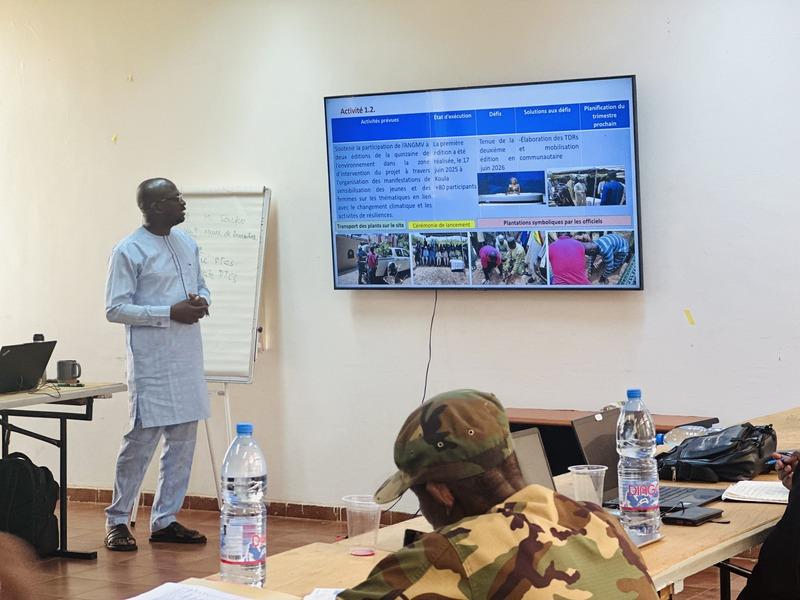
Au Mali, unis pour mieux agir face aux défis climatiques
Nènè TRAORE | 15/07/2025
À Kati, les partenaires du PTCS ont mis cartes sur table pour ajuster leurs approches, renforcer la coordination et bâtir une action commune au service des communautés. Les 2 et 3 juillet derniers, les partenaires de mise en œuvre du Portefeuille Thématique Climat Sahel (PTCS) se sont retrouvés à Kati pour deux jours d'échanges francs, sans filtres. L'objectif ? Mieux se comprendre, poser les vrais problèmes, chercher ensemble des solutions, et surtout, repartir avec une vision commune. Car sur le terrain, on le sait : ce ne sont pas les idées ou les plans qui manquent. Ce qui fait la différence, c'est notre capacité à travailler ensemble, à partager ce qui bloque, ce qui avance, ce qu'on ne comprend pas toujours, et ce qu'on peut améliorer. Cet atelier, c'était exactement ça : un espace de respiration. Un moment pour lever les malentendus, ajuster les approches, et se réaligner. Chaque partenaire a pris la parole : ceux qui avancent bien, ceux qui rencontrent des freins, ceux qui cherchent à faire autrement. On a parlé de retards, de villages peu réceptifs, de manque de coordination parfois… mais aussi d'initiatives qui présagent, de solutions concrètes, de coopérations prometteuses. Ce type de rencontre fait du bien. Elle montre que derrière chaque symbole, chaque projet, il y a des hommes et des femmes engagés, confrontés aux mêmes réalités de terrain. Et qu'ensemble, on peut faire mieux. Ce n'est pas une simple réunion de plus. C'est une manière de travailler qu'il faut cultiver. Se réunir régulièrement, prendre le temps d'écouter, de questionner, de revoir ensemble le cap… C'est ce qui permettra à nos actions d'avoir du sens, de perdurer et surtout d'avoir un vrai impact sur les communautés.L'avenir du PTCS se joue aussi dans ces moments-là. Et c'est en les multipliant qu'on se donne une chance de réussir vraiment. La réussite du PTCS repose sur une coordination fluide entre les acteurs. Organiser régulièrement ce type d'atelier, c'est créer un réflexe de collaboration, instaurer une culture du dialogue constructif et garantir que chaque partenaire avance avec les mêmes repères et objectifs. En clair : on ne réussira qu'ensemble. Et ce type d'exercice est une boussole indispensable pour garder le cap.
-
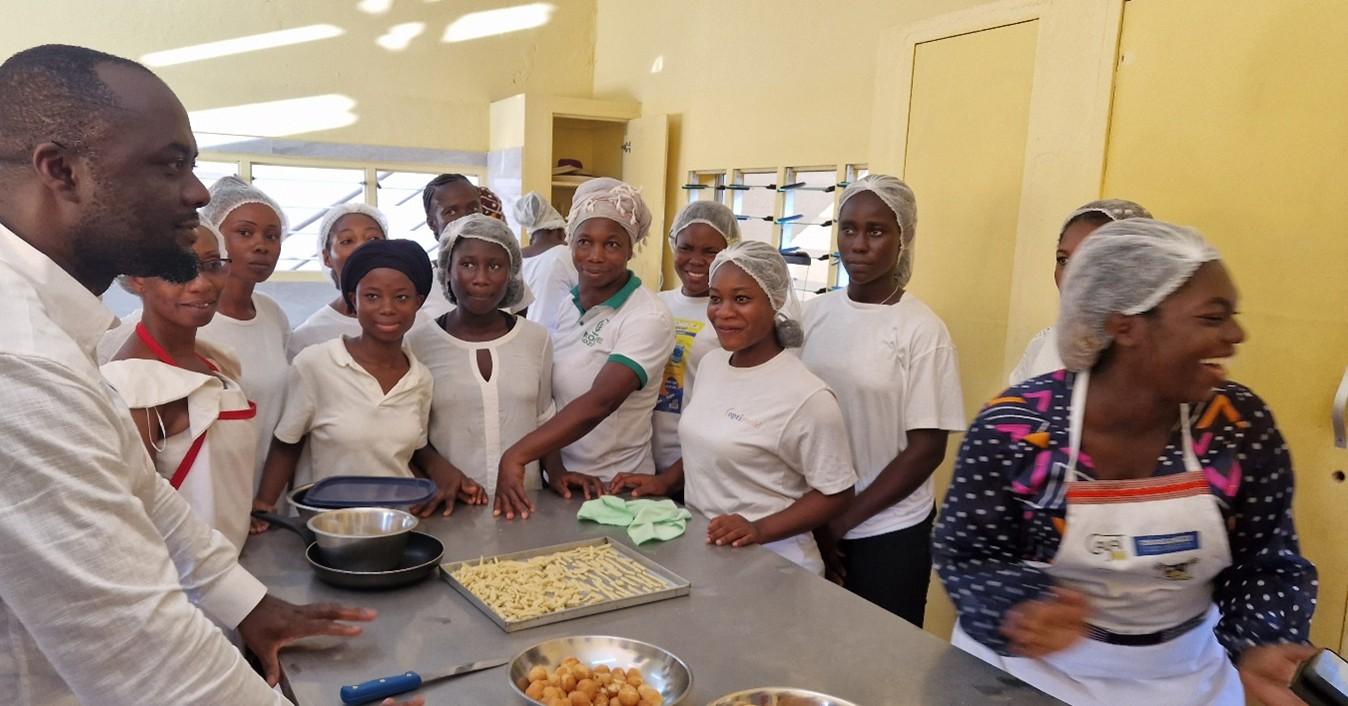
Les partenariats d’affaire stratégiques comme leviers de croissance pour les coopératives cacaoyères ivoiriennes
Arturo BIGLIA | 15/07/2025
Avec un budget total de 4,8 millions d’euros financé par l’Union européenne, le projet PEM N’Zassa, mis en œuvre par Enabel, fait la preuve qu’un appui stratégique et ciblé peut déclencher des investissements tangibles du secteur privé. En moins de deux ans de mise en œuvre, ce projet a en effet contribué à générer près de 2 millions d’euros d’investissements directs étrangers (IDE) au profit de 5 coopératives cacaoyères ivoiriennes, un acquis remarquable qui témoigne de la pertinence d’un modèle centré sur la mise en relation d’affaires entre opérateurs économiques africains et européens. LE PEM N’Zassa, qui vise à renforcer le capital humain ivoirien en dynamisant l’environnement des affaires de la Côte d’Ivoire, travaille constamment à améliorer la connexion des écosystèmes entrepreneuriaux ivoiriens et européens. Ainsi, Enabel soutient la création de partenariats d’affaires mutuellement bénéfiques entre opérateurs économiques de Côte d'Ivoire et d'Europe, en particulier belges, en favorisant la mise en relation et les voyages d’affaire d’entrepreneurs ivoiriens en Europe. C’est dans ce cadre que cinq coopératives ivoiriennes – UPAS, SCAMED, SCOOPANAB, YEYASSO et CAYAT – ont signé des accords avec des partenaires belges pour la réalisation de projets structurants : Des accords financiers entre Kampani, un fonds d’investissement belge à impact social, et quatre coopératives, qui leur permettront d'améliorer dans leur chaîne logistique via l’acquisition d’équipements pour la collecte et le transport des fèves de cacao, ou la construction d’entrepôts de stockage et la transformation locale du cacao. Les engagements se déclinent comme suit : - UPAS, 412 000€ pour les équipéments de collecte et de transport ; - SCAMED, 330 000€ pour les équipéments de collecte et de transport ; - SCOOPANAB, 458.000€ pour les équipéments de collecte et de transport ; - YEYASSO, 150 000€ pour l’installation d’une unité de production de chocolat.De partenariat industriel et d’approvisionnement pour le Groupe Belge Puratos NV, à travers sa filiale Puratos Cacao West Africa SA, qui a décidé d’investir plus de 550 000 € dans la construction d’un centre de fermentation et de séchage des fèves de cacao d’une capacité de 1000 tonnes par an, à travers un contrat de collaboration avec la coopérative CAYAT. Ce contrat permettra ainsi d’améliorer de façon significative la qualité des fèves et permettra la création d’une centaine d’emplois directs dans la région d’Adzopé (La ME). Ces différents partenariats sont le fruit de mises en relation facilitées par Enabel, d’un suivi étroit des négociations entre CAYAT et Puratos, de la collaboration continue sur le terrain entre les projets PEM N’Zassa et Cacao durable, tous deux financés par l’Union européenne, et également d’un partenariat formel sous la forme d’un Memorandum of Understanding (MoU) entre Enabel et Kampani, signé en mars 2024. Avec le soutien financier de l’UE, Enabel démontre ainsi la capacité du financement public à stimuler de l’investissement privé pour des projets structurants. En créant des ponts entre les économies européennes et africaines, Enabel et ses partenaires contribuent à créer un cadre pour la création de partenariats à forte valeur ajoutée et mutuellement bénéfiques. Pour Enabel, ce type projet est parfaitement aligné avec l’ambition 5 de la Stratégie 2030 Au-delà de l’aide. De plus, il vient confirmer la pertinence de la stratégie Global Gateways de l’Union européenne, qui ambitionne de développer des liens intelligents, propres et sûrs avec les pays tiers. Cette stratégie, à travers une approche Team Europe, entend mobiliser le « secteur privé pour stimuler des investissements permettant de produire des effets générateurs de changements ».
-
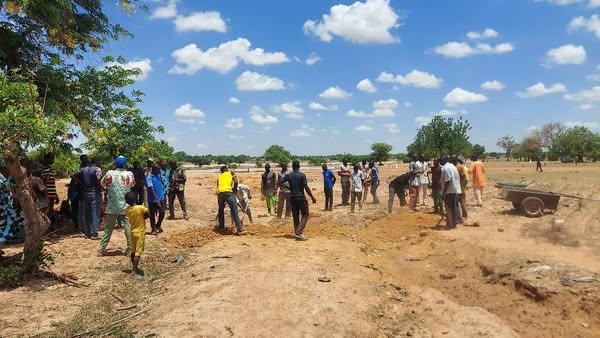
Au Burkina Faso, Enabel impulse une dynamique locale de préservation des ressources en eau
Geoffroy ZONGO | 14/07/2025
Dans un contexte de changement climatique de plus en plus préoccupant au Burkina Faso, la gestion durable des ressources naturelles s’impose comme une priorité absolue. C’est dans cette dynamique que le Comité Local de l’Eau (CLE) Sirba Singr’Jienu, avec l’appui technique de l’Agence de l’Eau du Gourma (AEG) et financier du Royaume de Belgique à travers Enabel, a organisé du 23 au 25 juin 2025 une session de renforcement de capacités à Andemtenga, dans la province du Kouritenga. Cette activité s’inscrit dans le cadre du Projet d’Appui au Renforcement de la Résilience Climatique des Communautés de Base (PARCoB), un projet mis en œuvre grâce au financement du Royaume de Belgique via Enabel, dans le cadre du Portefeuille Thématique Climat Sahel – volet Burkina Faso (PTCS-BFA). L’objectif du projet est clair : renforcer la résilience des communautés face aux effets néfastes des changements climatiques, notamment par la protection des ressources en eau, essentielles à la vie et aux activités économiques. Deux jours sur le terrain pour transformer la théorie en pratique La session de formation a réuni les usagers de l’eau du sous-bassin de la Sirba Singr’Jienu, désireux de renforcer leurs compétences pour mieux protéger leur environnement. Organisée en deux phases, la formation a débuté par une journée d’enseignements théoriques centrés sur trois axes majeurs : - Les cordons pierreux, une technique agroécologique permettant de freiner l’érosion hydrique et de retenir les eaux de ruissellement pour recharger les nappes ; - Le traitement des ravines, pour stopper la progression des dégradations physiques des sols, souvent accélérées par les pluies torrentielles ; - L’entretien courant des barrages, afin d'assurer leur bon fonctionnement et prolonger leur durée de vie au profit des communautés riveraines. À l’issue de cette phase théorique, les participants ont été déployés sur le terrain pendant deux jours pour expérimenter directement les techniques abordées. Cette approche pédagogique basée sur la pratique a permis à chaque usager de s’approprier les savoir-faire, de développer les bons réflexes et d’identifier les pratiques les plus adaptées à son milieu. Une dynamique communautaire renforcée Au-delà des acquis techniques, cette session a renforcé la cohésion entre les acteurs locaux autour d’un objectif commun : la préservation des ressources hydriques du sous-bassin. Elle marque aussi une avancée importante dans la mise en œuvre du principe de Gestion Intégrée des Ressources en Eau (GIRE), qui mise sur l’implication de tous les usagers dans la protection et la valorisation durable des cours d’eau, des retenues et des ouvrages hydrauliques. L’AEG, qui accompagne le CLE Sirba Singr’Jienu dans ses actions, se réjouit de la forte mobilisation et de l’engagement des communautés. Cette formation est un pas de plus vers l’autonomisation des communautés locales dans la gestion des ressources naturelles. Grâce au soutien de la Belgique, l’agence a pu renforcer les capacités techniques des acteurs de terrain et leur donner les outils nécessaires pour faire face aux défis climatiques . Un appui structurant de la coopération belge Le Royaume de Belgique, à travers Enabel, joue un rôle clé dans l'accompagnement des initiatives locales de résilience climatique. Son engagement dans le cadre du Portefeuille Thématique Climat Sahel – volet Burkina Faso (PTCS-BFA) se manifeste par un appui concret aux institutions nationales et locales, ainsi qu’aux populations rurales directement affectées par la dégradation de leur environnement. Par cette action, la Belgique réaffirme son soutien à la stratégie burkinabè de gestion durable des ressources naturelles et à la mise en œuvre de solutions locales adaptées. À terme, ces efforts visent à préserver les écosystèmes fragiles du Sahel, garantir l’accès équitable à l’eau et contribuer à la sécurité alimentaire des communautés.
-
Tanzania: First cohort of youth digital ambassadors equipped for deployment
Mkama MWIJARUBI | 11/07/2025
DOT Tanzania, Enabel implementing partner in the Inclu-cities project, has kicked off its first training of community youth digital ambassadors, branded Digital Balozis. The cohort consisted of 10 youths. They have been equipped with the digital, soft, financial, and green skills needed to navigate and address their daily challenges, including adapting to and mitigating climate change, embarking on new career paths, starting small businesses, participating in civil society, or designing solutions to community challenges. After their training, Digital Balozi will go for community deployment from July to December 2025. In their deployment, they will provide SMEs with essential business and digital skills, business digitization and market linkages. Their work will foster scalable and commercially viable businesses that drive job creation, address local challenges, and strengthen regional economies. Inclu-cities’ Digital Balozi programme is designed to put youth at the centre of community change by equipping youth and women entrepreneurs who run micro or small businesses in Mwanza, Tanga, and Pemba with basic digital, green, and financial literacy skills. In the Digital Balozis programme, the Inclu-cities project leverages, DOT’s youth-led model, rooted in a proven assumption that by transforming the individual, the individual can transform their society. Overall the Digital Balozi’s will impact at least 300 young women and men, aged 18 to 35 years who own and operate micro and small businesses in their communities in transforming and scaling their enterprises through digital and green innovation in Mwanza, Pemba, and Tanga. Global research has shown that youth peer-to-peer training approaches are more effective because they reduce age-related hierarchy in the learning environment, as they allow young people to learn from those who are socially more similar to them Through this peer-to-peer model, youth become catalysts of change in their community - creating a ripple effect, whereby through sharing knowledge and skills with, and building confidence among their peers, families, and communities at large, one youth’s actions creates and gains momentum leading to widespread behaviour change.
-
Au Burundi : planifier ensemble pour un impact durable en santé mentale !
Jean BIRONKWA | 10/07/2025
Du 25 au 27 juin 2025, le Ministère de la Santé Publique et de la Lutte contre le Sida, à travers le Programme de lutte contre les Maladies Chroniques Non Transmissibles, a organisé à Gitega l’atelier annuel de planification conjointe 2025-2026 des activités de santé mentale. Cet atelier, soutenu par Enabel via le programme NTUSIGARE INYUMA – Volet Santé, a rassemblé l’ensemble des acteurs nationaux et internationaux œuvrant dans le domaine de la santé mentale. Objectif : construire une vision commune et coordonnée pour des services de santé mentale accessibles et intégrés dans les soins de santé primaires. La santé mentale, composante essentielle de la santé globale, représente encore un défi majeur au Burundi. Parmi les principaux obstacles identifiés, il s’agit de l’insuffisance de personnels qualifiés, la non disponibilité des médicaments, le manque de financement dédié à la santé mentale, la stigmatisation persistante et le manque d’infrastructures adaptées. Le Directeur du PNILMCNT/MSPLS en charge de la santé mentale a insisté sur l’importance de planifier ensemble pour répondre efficacement aux besoins de la population et agir de manière coordonnée face aux défis posés par la prise en charge des troubles mentaux au Burundi. Enabel demeure un partenaire engagé pour promouvoir des soins de santé mentale plus accessibles, mieux intégrés, et portés par une approche communautaire et multisectorielle.
